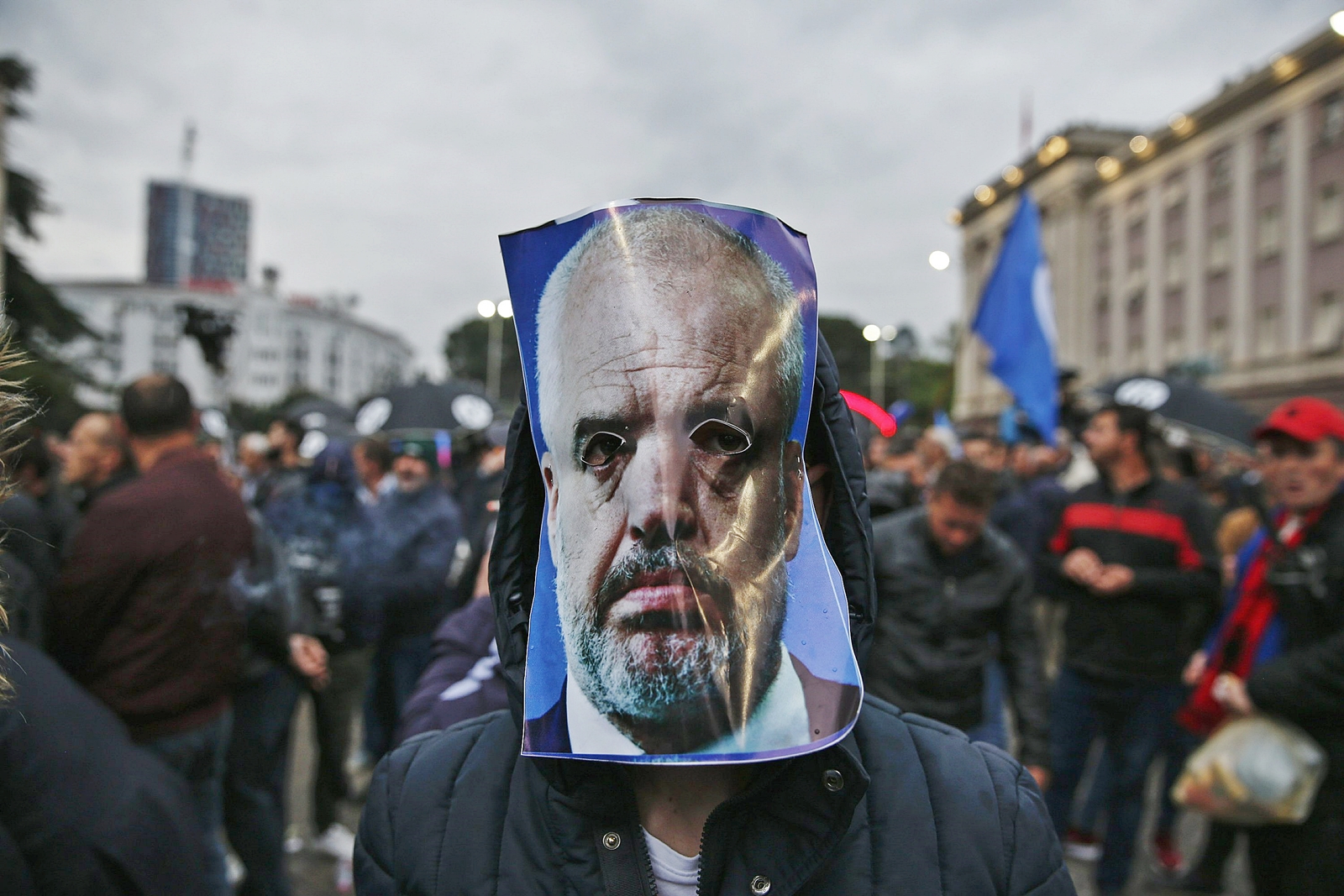In Albania, media censorship, corruption, and anti-defamation laws are jeopardizing the country’s aspirations in joining the European Union. Prime Minister Edi Rama’s government has pressured members of parliament to approve laws that will further censor the media and silence all newspapers that criticize the government.
Growing patterns of corruption, nepotism in the judiciary, and bribery among top officials have become the main obstacles in Albania’s path towards the European Union.
Rama’s credentials in fostering democratic institutions have deteriorated since 2017, with his cabinet ministers focused solely on how to gain personal wealth to the detriment of the Albanian people. Judicial reforms in the country, including the election of new members to the Constitutional Court and the establishment of the Supreme Council of Justice, are some of the endemic challenges that are derailing Albania’s EU integration process.
According to the Konrad Adenauer Foundation’s Tobias Rüttershoff: “The Ministers for Europe of the 27 EU states adopted and supplemented demands from the Bundestag so that the West Balkan state must now fulfill 15 conditions before the individual negotiations chapters or clusters can be opened. Six of which still need to be fulfilled prior to beginning the 1st intergovernmental conference.
Even though great hopes were placed on these six conditions being fulfilled before the end of 2020 and, thus, on the conference taking place as part of the German EU Council Presidency, the chances of this are currently dwindling.†The first intergovernmental conference is a pending matter and will certainly not take place until the second half of 2022.
In 2014, Albania was ranked by Reporters Without Borders 85 out of 173 countries in its Freedom of the Press Index. As a country with over 2.8 million people, Albania has 25 daily newspapers, 69 quarterly publications, over 100 television channels, and 36 monthly magazines.
The phenomenon of self-censorship is widespread and is found in both private and state-owned media and it represents one of the biggest challenges to the media market today in Albania.
In Tirana, journalists continue to practice self-censorship due to fears of repercussions in what could happen if they publish certain information. They fear injury to themselves or their families, lawsuits, or other penalties. The written media is used as a tool to promote political and private economic interests at the same time weak enforcement of labor rights among journalists makes the latter very vulnerable to discrimination and being dismissed without cause.
Although the Iron Curtain crumbled some thirty years ago, prosecutions have become a notorious practice in Edi Rama’s political agenda, meanwhile, his cronies are obstructing judicial reforms. As Albania prepares to hold parliamentary elections on April 25th, lack of judicial reforms has proven to be fatal in the country’s absence of institutional independence which empowers organized crime to operate with full impunity inside Albania.
According to the Associated Press: “Albania’s elections have always been strongly contested and frequently marred by irregularities, including alleged vote-buying and manipulation of ballot counts.â€
The country is experiencing one of the worst moments in its modern history. Albanian institutions, with the exception of the presidency, are strictly aligned with Rama.
According to Robert Carmona-Borjas: “A long-term consequence has been judges living well beyond their publicly disclosed means, mobsters overlooked for prosecution and a political sub-culture reliant on a system which keeps them well protected.†Such practices are deteriorating the independence of decision-making among independent state bodies – including the Supreme Judicial Council and Constitutional Court – harming democratic standards and violating the balance of power in the country.
Albania desperately needs judicial reform. Such actions are needed to secure the country’s integration into the European Union.
In addition to these endemic challenges, Albania is reviving the model of communist purges against independent media outlets and parties of the opposition as it struggles to fight corruption among government officials and ensure the independence of the judiciary. April 25th will determine Albania’s political future and European Union integration.
By Peter M. Tase, Milwaukee, Wisconsin, USA.





